We all know we shouldn’t eat too much salt – but yet we’re still eating around double the levels recommended by the World Health Organization.
Many of us think that by refusing to add extra salt to our meals we’re doing more than enough to cut down.
But that’s not the case at all. In fact, over 75% of the sodium in our diets comes from processed foods. Often, they’re the foods you wouldn’t expect to have crazy high levels of salt. And these foods are killing us. I mean literally killing us!
Read on and find out all the different ways a high sodium diet contributes to early death. And remember this list the next time you reach for a bagel or bowl of cereal!
High Blood Pressure

If you eat a lot of processed food, or generously sprinkle salt on your meals, you are at a higher risk of developing hypertension, also known as high blood pressure.
High blood pressure causes the force of blood pushing against the walls of the arteries to be too strong, leading to numerous health concerns, as we’ll cover later on.
Just trust me, you don’t want to let your blood pressure levels rise too much. That means cutting out the hidden sources of salt.
A study published in July 2015 looked at over 4,500 adults with normal blood pressure levels. After three years, researchers found that 23% of participants developed high blood pressure.
Those with a high salt intake were 1.25 times more likely to have hypertension than those with a low salt intake.
If you’re a man, you may need to be even more conscious of how much salt you’re eating.
An earlier study, in 2010, found a positive relationship between dietary salt intake and high blood pressure, in men more so than women.
Obesity
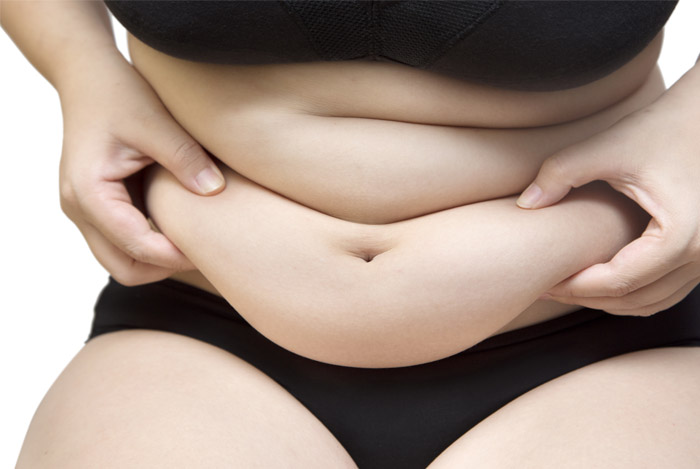 According to the Centers for Disease Control and Prevention (CDC), obesity is a common and worrying issue in the US. Over one third of American adults are obese, which in 2008, cost $147 billion in medical expenses.
According to the Centers for Disease Control and Prevention (CDC), obesity is a common and worrying issue in the US. Over one third of American adults are obese, which in 2008, cost $147 billion in medical expenses.
We know that an unhealthy diet, full of processed foods, coupled with little to no physical activity can lead to obesity. Genetic factors and various health conditions can also be contributors.
But, recent research has found an interesting and significant link between salt intake and obesity.
Researchers at the Queen Mary University of London discovered that adding just one more gram of salt to your daily intake could increase your risk of obesity by up to 25%.
It’s believed that salt affects the metabolism rate of the body, perhaps blocking its ability to absorb fat.
However, the study’s findings don’t prove that cutting salt will aid weight loss, meaning that prevention is definitely better than the cure in this case.
This could be especially true in the case of young people who consume high levels of salt.
A study of nearly 800 US teens, aged 14 to 18, found that those who ate more salt were more likely to be obese and show markers of inflammation, regardless of the overall number of calories consumed.
Worryingly, 97% of the teens in the study admitted they consumed more salt than national guidelines recommended.
Inflammation & Auto-Immune Diseases
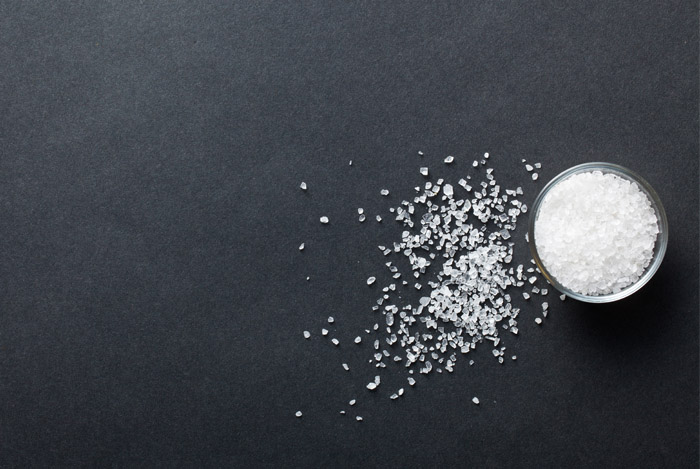 Auto-immune diseases, which affect 24 million people, are increasing at dramatic rates according to Dr. Mark Hyman, with inflammation being thought to be at the root cause of them.
Auto-immune diseases, which affect 24 million people, are increasing at dramatic rates according to Dr. Mark Hyman, with inflammation being thought to be at the root cause of them.
In addition to the study of salt’s effect on teenagers, several other studies have also found a link between salt intake and inflammation.
Researchers at Yale found that mice fed a high-salt diet developed a highly inflammatory cell that caused their bodies’ defense systems to break down. They then developed a severe form of multiple sclerosis (MS) called autoimmune encephalomyelitis.
It’s believed this same cell can lead to other auto-immune diseases like type 1 diabetes, psoriasis, asthma and rheumatoid arthritis.
However, researchers say that if you already have an auto-immune condition, a low sodium diet won’t change that. Though it may help ease symptoms of some auto-immune diseases and is a low-risk option for most sufferers.
To help lower your risk of developing these illnesses in the first place, cut down on your salt intake and follow an anti-inflammatory diet.
Stroke
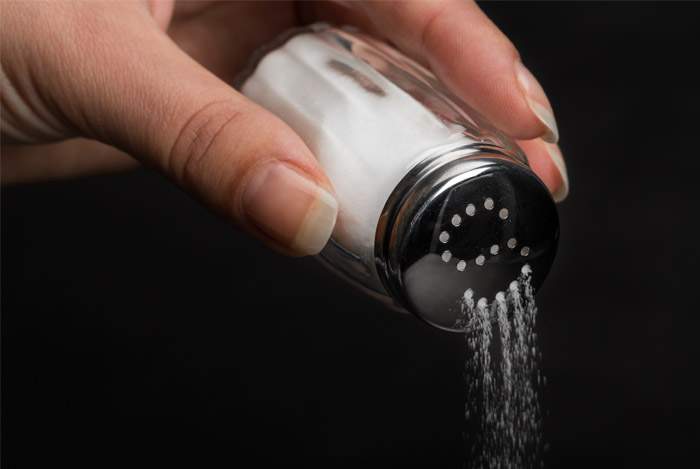 A stroke is a ‘brain attack’ that happens when blood flowing to a certain part of the brain is cut off, depriving the brain’s cells of oxygen.
A stroke is a ‘brain attack’ that happens when blood flowing to a certain part of the brain is cut off, depriving the brain’s cells of oxygen.
When deprived of oxygen, those parts of the brain begin to die leading to complications like complete paralysis of bodily parts or even loss of speech.
Because salt leads to high blood pressure, which is a huge risk factor for stroke, cut the salt and you’ll cut your stroke risk.
According to a study of over 2,600 people conducted over a 10 year period, less than 2 teaspoons of salt a day can raise your risk of stroke. Those who ate over 4,000 milligrams of sodium a day were 2.5 times more likely to have a stroke than those who got less than 1,500 milligrams a day.
Strangely, the results were the same whether or not the participants had high blood pressure.
Harvard Medical School say that, in addition to cutting your salt intake, increasing the amount of potassium you consume can lower blood pressure and prevent stroke.
Sources of potassium include leafy greens like spinach and kale, vine fruits like grapes and blackberries, root vegetables including carrots and potatoes and citrus fruits.
Heart Disease
 How does salt affect the heart, you ask?
How does salt affect the heart, you ask?
The arteries leading to the heart become damaged over time by high blood pressure, which eventually sees them becoming completely clogged or even bursting.
The result is a heart attack.
In fact, too much dietary salt played a part in 2.3 million heart-related deaths worldwide in 2010, 40% of them were premature, happening to those under the age of 69!
About 58,000 cardiovascular deaths in America alone can be linked to eating more than the recommended level of salt.
Finnish scientists report that decreasing your salt intake can significantly decrease your risk of death by stroke or heart disease.
Over a 30 year period in Finland, simply reducing salt intake by an average of 30 to 35%, saw a staggering 75% to 80% decrease in deaths by these two conditions, in those under 65.
In the same timeframe, life expectancy increased by between 6 and 7 years for both males and females.
Stomach Cancer
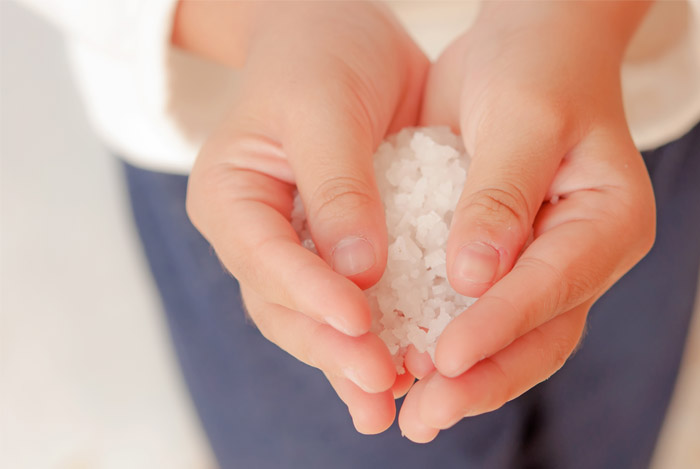 Stomach cancer is the fourth most common cancer and the third leading cause of cancer death in the world.
Stomach cancer is the fourth most common cancer and the third leading cause of cancer death in the world.
A review of published articles found that the risk of developing stomach cancer is 68% higher in those with high salt intake compared to those with low salt intake.
And the more salt you eat, the more your risk rises.
It’s thought that salt can contribute to stomach cancer in two ways.
Firstly, a higher salt intake can increase your risk of getting a chronic H. pylori infection. This type of bacterial infection causes chronic inflammation and stomach ulcers and is the strongest known risk factor for gastric cancer.
Secondly, salt itself might irritate the stomach lining and cause inflammation, which means the stomach is more exposed to carcinogens from our cookware and food.
Osteoporosis
 Osteoporosis is a condition where your bones become weak and brittle, making them more likely to break.
Osteoporosis is a condition where your bones become weak and brittle, making them more likely to break.
In order to prevent osteoporosis, we need to have adequate levels of calcium in our bodies (as well as enough vitamin D).
Even if you’re meeting your recommended daily value of calcium, if you eat a high sodium diet you’re actually raising the amount of calcium you excrete from your body, through urine.
While all foods – even fruits and vegetables – naturally contain sodium, studies show that it is regular table salt, not natural sodium, that causes calcium loss and weak bones.
Given that Americans get 90% of their sodium through salt, it’s not surprising that 10 million people in the US have osteoporosis, with another 18 million at risk of developing it. An additional 34 million are at risk of low bone mass, known as osteopenia.
Maybe you’re thinking ‘okay Mike, so you’ll break some bones, but it won’t kill you’.
Actually, several studies say that a non-vertebral fracture, particularly of the hip, can lead to significant disability and even death. In fact, osteoporosis kills more women than all gynaecological cancers combined.
Kidney Disease
 The kidneys are one of our body’s ways of excreting waste. They do this by filtering blood through the kidneys in a process that requires a delicate balance of sodium and potassium.
The kidneys are one of our body’s ways of excreting waste. They do this by filtering blood through the kidneys in a process that requires a delicate balance of sodium and potassium.
Of course, when we eat too much salt we throw off this delicate balance and inhibit the function of the kidneys, which leads to extra stress and strain.
Over time, this can cause irreversible damage to the kidneys, which if left untreated, progresses to chronic kidney disease (CKD) and kidney failure.
Kidney disease kills over 90,000 Americans every year – more than prostate cancer and breast cancer combined. And, those with kidney disease have a higher risk of heart attack or stroke.
As there is no cure for chronic kidney disease, it’s imperative that we prevent this illness by cutting out the excess salt from our diets.
Those already diagnosed should steer clear of salt too – a recent study of almost 4,000 people with CKD has linked high levels of sodium and potassium in the urine with faster disease progression.
Here are some more tips to help you protect your kidneys.
Other Reasons to Put Down the Salt Shaker
As you’ve seen, salt can contribute to some deadly diseases and killer conditions. But it can also cause other unhealthy side-effects such as the ones we’re about to cover.
Bloating & Water Retention
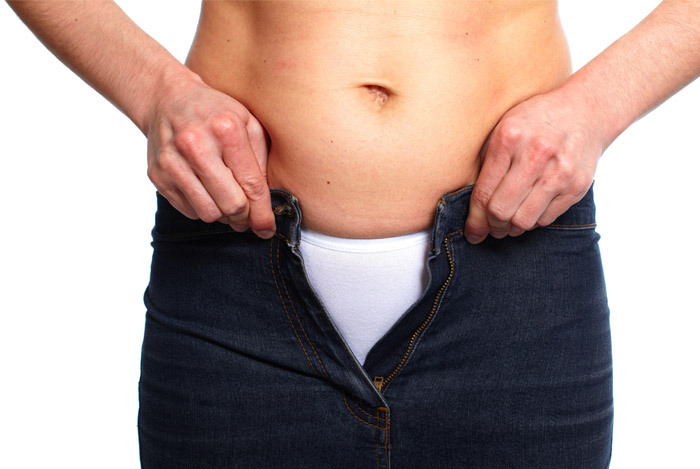 You know what I mean by bloating – that feeling of puffiness, swelling and all-over discomfort.
You know what I mean by bloating – that feeling of puffiness, swelling and all-over discomfort.
To relieve symptoms, cut down on added salt, and check out my post on all the ways to Banish Bloating for Good.
While it’s not going to kill you to have the occasional binge on salty foods, doing it frequently can lead to chronic bloating and the more serious conditions I’ve listed.
Keep in mind that continuously looking bloated can be a sign of hypertension or kidney damage.
Dehydration
 Too much salt can cause dehydration, which in turn leads to a whole load of health problems.
Too much salt can cause dehydration, which in turn leads to a whole load of health problems.
Dehydration:
- Is one of the most common causes of chronic constipation
- Negatively impacts our concentration and mood
- Can lead to kidney stones, urinary tract infections and kidney infections
- Causes headaches
- Affects physical performance, strength and endurance
- Leads to dry, tight, flaky and wrinkled skin
Find out how much water you should be drinking here.
Exacerbates Exercise-Induced Asthma
 If you experience exercise-induced asthma, then cutting down on salt levels might see your performance improve.
If you experience exercise-induced asthma, then cutting down on salt levels might see your performance improve.
Researchers at Indiana University’s Department of Kinesiology divided 24 women and men with exercise-induced asthma into two groups, a high sodium and low sodium group, for two weeks.
They were then asked to run on a treadmill until exhausted. Those on the high-salt diet showed a dramatic decline in lung function. They exhaled less air than those on the low-salt diet, and they needed their bronchodilator drugs more often.
They also had far more markers of inflammation in their sputum, indicating their airways were more constricted.
High intakes of salt have also been shown to worsen symptoms of non-exercise induced asthma.
Overall…
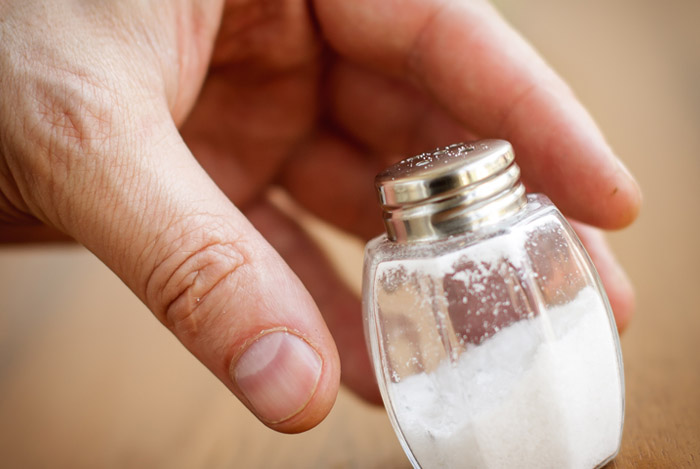 Salt is just plain bad for us. We don’t need anywhere near the levels of salt we’re consuming, particularly as all food contains some level of sodium.
Salt is just plain bad for us. We don’t need anywhere near the levels of salt we’re consuming, particularly as all food contains some level of sodium.
Make the effort to cut out added salt today, and it will pay off in the long run.
Are you as shocked as I am by just how deadly salt really is?
The post 8 Reasons Why Too Much Salt is Killing You appeared first on Nutrition Secrets.
http://www.nutritionsecrets.com/salt-killing-you/
No comments:
Post a Comment